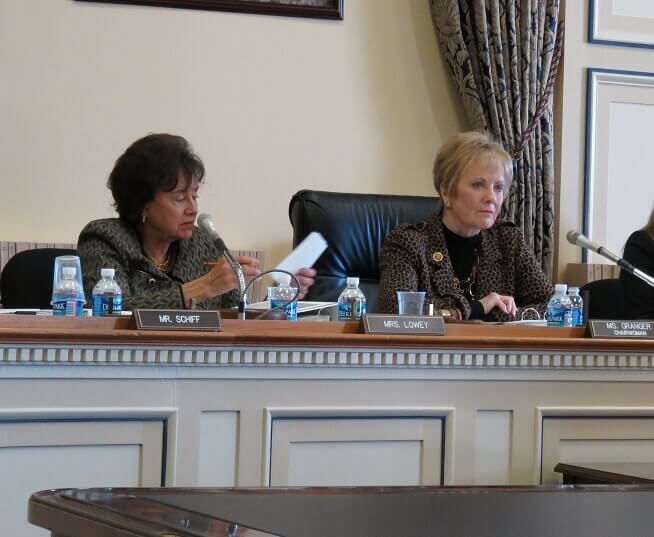Ashley BennettGHTC
Ashley Bennett is a Policy and Advocacy Officer at GHTC.
Earlier this week, the GHTC and other global health and international development advocates called on the House Appropriations State and Foreign Operations
subcommittee to fully fund key programs in the foreign affairs budget. Advocates presented testimony regarding the fiscal year (FY) 2014 budget for
State and Foreign Operations, which includes funding for the US Agency for International Development (USAID) and many other global health and research
programs.
Subcommittee Chair Rep. Kay Granger (R-TX) and Ranking Member Rep. Nita Lowey (D-NY) ran the proceedings, and Reps. Barbara Lee (D-CA) and Henry Cuellar (D-TX) also attended. Granger and Lowey kicked off the hearing with statements in support of continued US leadership in global health and foreign aid programs. Lowey stated that she is “proud of the progress that US government funding has made against diseases like tuberculosis, malaria and HIV and AIDS.” Global health research and development (R&D) efforts funded by agencies like USAID play an inextricable role in this progress, through innovations such as new HIV drugs, tuberculosis (TB) diagnostics, and advanced insecticides to bolster the use of mosquito nets to prevent malaria.

The GHTC and many of its members were invited to testify at the hearing, and spoke about the value of global health research in terms of saving lives, improving health outcomes, furthering American innovation, and increasing cost-savings in public health over the long term. According to the GHTC’s written testimony, every day “more than 35,000 people die from AIDS, TB, malaria, and other neglected diseases around the world. … These issues highlight the urgent need for sustained investment in global health research to deliver new tools to combat these devastating diseases.” Fortunately, previous “US investment in global health R&D has generated great success in treating devastating diseases and improving the lives of millions through new technologies.” And there are “several very promising technology candidates in the R&D pipeline; however, these tools will never be available if the support needed to continue R&D is not supported and sustained.”
Other GHTC members stressed the importance of sustained support from USAID and other US agencies for global health research initiatives. For example:
Other global health community members such as the Non-Communicable Disease Roundtable, Bread for the World, and the GAVI Alliance also testified in support of global health and development programs.
Witnesses at the hearing strongly demonstrated that even in this extremely challenging fiscal climate, when difficult decisions must be made in the face of budget cuts, is it essential that Congress prioritize effective programs that save lives at home and abroad. Global health research and product development programs at USAID save millions of lives, spur economic activity in the United States, and save money in the long run. These programs must be protected, and the US leadership in this area must not falter. To achieve this goal, Congress must ensure that global health research programs at USAID and across the government are robustly funded in FY 2014.